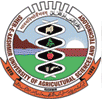Contact Information
-
location_on
Shalimar Campus, Srinagar, Jammu and Kashmir 190025, India
-
call
(0194) 2461271, 2461349
-
mail_outline
(0194) 2461258, 2461259
-
email
- web_asset
Approved By: UGC
About Sher-e-Kashmir University of Agricultural Sciences and Technology of Kashmir
The Sher-e-Kashmir University of Agricultural Sciences and Technology of Kashmir (SKUAST), was established in the year 1982 with the objectives of catering to the research, education and extension education requirements of the state. It is named after great patriotic leader Jenab Sheikh Mohammad Abdullah (popularly known as Sher-e-Kashmir). The University's jurisdiction extended over the entire State of Jammu & Kashmir with its headquarter at Shalimar, Srinagar. In the year 1998-99, the territorial jurisdiction of the University was redefined by amending the SKUAST Act 1982 under which a separate agricultural University was established for Jammu Division and named as Sher-e-Kashmir University of Agricultural Sciences and Technology of Jammu (SKUAST-J) with its territorial jurisdiction extended to the entire Jammu Division. The parent University was renamed as Sher-e-Kashmir University of Agricultural Sciences and Technology of Kashmir (SKUAST-K). The University operates on the Land Grant College concept of USA following the Model Act of State Agricultural Universities evolved by the Indian Council of Agricultural Research. It is a multi campus University.
SKUAST-K has jurisdiction over Kashmir Valley and Ladakh comprising two-ecological zones.
1. Mid-High altitude Temperate Zone namely the Kashmir Valley covering the district of Anantnag, Budgam,, Baramullah, Pulwama, Kupwara and Srinagar which has annual precipitation of 660 to 1400 mm with average temperature around 130C and the altitude ranging between 1500-2500m amsl.
2. Cold-Arid Region namely Ladakh, the districts of Leh and Kargil which are cold desert with only precipitation around 70-90 mm and altitude above 2000m amsl.
Location - Click here for Google Map Location.
Faculty
- Faculty of PG Studies.
- Faculty of Agriculture.
- Faculty of Horticulture.
- Faculty of Veterinary Sciences.
- Faculty of Fisheries.
Facilities
Library System - The Library System of Sheri-e-Kashmir University of Agricultural Sciences and Technology of Kashmir, comprises of Central Library (CL) at the main campus Shalimar, Faculty of Agriculture (FOA) Library at Wadura Sopore, Faculty of Veterinary Sciences & AH (FVSc.) Library at Shuhama Srinagar and Regional Research Station/ Sub-Station (RRS/RRSS) Libraries located all across the Division of Kashmir and Ladakh. The book collection consists of 38082 textbooks and 3926 reference books. The University subscribes at present to 70 Indian and 51 Foreign scientific journals on annual basis. It also has a comprehensive CDROM Database Library of about 925 million records. The Library System subscribes to 256 Kbps bandwidth through Dama VSAT and to 2 Mbps through leased line. The Internet services are facilitated by ERNET India as Internet Service Provider (ISP). The Library avails the facilities of network infrastructure, library networks and databases developed by ICAR, IASRI, INFLINET and ERNET.
NRI/NRIS Sponsored Admissions - From the academic session 2003-04, the University has introduced admission of Non-Resident Indian (NRI)/Non-Resident Indian Sponsored (NRIS) category to undergraduate/postgraduate programmes. Admission to this category is made by the University on the basis of merit in qualifying examination. The seats as may be earmarked to each programme against the fee and 5% seats are reserved for various undergraduate programmes under this category. The eligibility requirements for admission under this category are the same as prescribed for open merit. The selection is made on the basis of inter-se-merit at the qualifying examination. Information Brochure covering all details of admission to NRI/NRIS to undergraduate and Post Graduate Degree programmes is also made available.
The following documents shall be considered as a proof of NRI Status :-
- Copy of the Non-Resident Card/Green Card/Employment Card issued by the Employer.
- Photocopy of the immigration/employment Visa entry on the passport along with details of the passport.
- Certificate issued by the Indian Embassy/ High Commission in the country where NRI is residing.
- Photocopy of the latest assessment order of the Income Tax authorities either in India or the country of the employment filed in the status of Non-Resident Indian.
- Certificate of sponsorship from NRI along with proof of NRI status of the sponsor is required as above.
Directorate of Extension Education
Activities
- Information & Publications - Use of mass media through Doordarshan and Radio as well as print media (Publications, pamphlets, leaflets, informative messages etc.) is ensured on regular basis.
- Farm Advisory Services - Farm Advisory Services are represented in the form of Disease Diagnostic Team visits, plant/animal clinical camps, Kisan Goshties and Kisan Melas.
- Trainings - The Training and Visit system was introduced in the state of Jammu & Kashmir since 1984. Under this system all development officers particularly Subject Matter Specialists (SMSs), Sub-Divisional Extension Officers (SDEOs),Agriculture Extension Officers (AEOs) and Village Level Workers (VLWs) play important roles in dissemination of Agricultural Technology to farmers field. Training is ensured through Monthly Training and Visits (T&V) Workshops and training on special topics.
- ATIC - Agricultural Technology Information Centre ensures availability of technical know-how and farm-inputs (particularly seeds). It is also equipped with a Kissan Call Centre to address the problems of farming community.
- KVK - Krishi Vigyan Kendras are located in Srinagar, Budgam, Anantnag Pullwama, Baramulla, Kupwara, Leh & Kargil. Krishi Vigyan Kendras are actively involved in the process of technology dissemination to the farmer's field through Front Line Demonstrations and various training programmes. Three types of training programmes are also a mandatory activity of these KVKs i.e. Farmers Training, Vocational Training and In-service Training.
Achievements
High yielding variety, long and bright red fruits having moderate resistance to Fusarium with yield increase of 60% over local, yield potential. Single cross hybrid, average fresh fruit yield Hybrid -2 potential of 650 q ha-1, flesh medium thick, pulpy with good amount of vitamin C (25 mg/ 100 g). The fruit matures in 67-75 days and the hybrid is tolerant to early blight, leaf spot and fruit rot.
Information compiled from: Sher-e-Kashmir University of Agricultural Sciences and Technology of Kashmir Website

